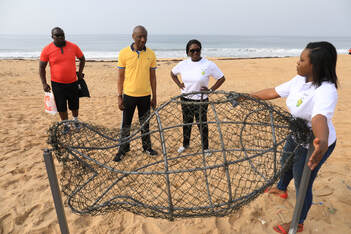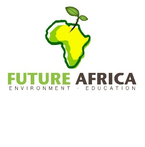|
Future Africa Foundation
Founder - Charles Kie Country of Origin - Côte d'Ivoire Countries of Operation - Côte d'Ivoire Sectors of Activity - Environment and Education |
“A fundamental concern for others in our individual and community lives would go a long way in making the world the better place we so passionately dreamt of.” Nelson Mandela
|
Executive summary

The founders of Future Africa created the Foundation (FAF) in 2013 to give underprivileged children the chance to access good quality education in a healthy environment. One of its stated aims is to educate the masses about environmental issues including plastic waste, recycling and preservation with a view to building healthy environments and creating sustainable businesses for improved livelihoods.
The Foundation differentiates itself by taking a 360° view of multiple intertwined problems: lack of access to quality education, women’s empowerment, environmental protection practices, sustainable businesses – all through improved waste management solutions. The Foundation aims to dive deep and address the root causes of these burgeoning issues. It takes a circular economy-like approach to maximize resource utilization and minimize waste, both material and human. This business-like approach with clear KPIs is one of the factors differentiating it from its peers.
If, according to all UN resolutions, access to education is every child`s birthright, then the world has failed millions if its children. To redress a small part of that failure, the Foundation works to rehabilitate schools around landfills so children born in and around communities neighboring these garbage dumps have access to education. They aim is to get these children out of the dumps and back to where they belong – in school, so they may have a shot at a better life.
Women garbage pickers remain at the bottom of a very lucrative food chain. They have the lowel level of protections – financial, social, health – even if they sort plastic for large multinationals. The Foundation works with women garbage pickers who make a living by selling plastic to middlemen for industrial use. FAF works to support these women in organizing collectives to give them more negotiating power vis-à-vis the middlemen. The Foundation is implementing programs to train these women in sorting, organizing and selling plastic at better prices.
One of the many challenges encompassing education is lack of classrooms in the Ivory Coast. In addition, the country – like the continent – is drowning in plastic waste. Future Africa Foundation has partnered with UNICEF not only to help improve educational standards but also supports the idea of using plastic waste to build bricks which in turn are used to build classrooms. The technology which comes from Columbia can create local employment opportunities, help women garbage pickers to sell directly to the plants and also help rid the environment of plastic.
Key Takeaways
The Foundation differentiates itself by taking a 360° view of multiple intertwined problems: lack of access to quality education, women’s empowerment, environmental protection practices, sustainable businesses – all through improved waste management solutions. The Foundation aims to dive deep and address the root causes of these burgeoning issues. It takes a circular economy-like approach to maximize resource utilization and minimize waste, both material and human. This business-like approach with clear KPIs is one of the factors differentiating it from its peers.
If, according to all UN resolutions, access to education is every child`s birthright, then the world has failed millions if its children. To redress a small part of that failure, the Foundation works to rehabilitate schools around landfills so children born in and around communities neighboring these garbage dumps have access to education. They aim is to get these children out of the dumps and back to where they belong – in school, so they may have a shot at a better life.
Women garbage pickers remain at the bottom of a very lucrative food chain. They have the lowel level of protections – financial, social, health – even if they sort plastic for large multinationals. The Foundation works with women garbage pickers who make a living by selling plastic to middlemen for industrial use. FAF works to support these women in organizing collectives to give them more negotiating power vis-à-vis the middlemen. The Foundation is implementing programs to train these women in sorting, organizing and selling plastic at better prices.
One of the many challenges encompassing education is lack of classrooms in the Ivory Coast. In addition, the country – like the continent – is drowning in plastic waste. Future Africa Foundation has partnered with UNICEF not only to help improve educational standards but also supports the idea of using plastic waste to build bricks which in turn are used to build classrooms. The technology which comes from Columbia can create local employment opportunities, help women garbage pickers to sell directly to the plants and also help rid the environment of plastic.
Key Takeaways
- Sustainable and long-term change can only occur by working with the system to enable the system.
- Social transformation and development require substantial investment in educational tools, school design and infrastructure, and teacher training.
- New technologies should be adopted to address the growing problem of plastic waste.
- Change comes through providing opportunities for sustainable livelihoods particularly to those at the bottom of the pyramid like waste pickers.
- Collaboration with state actors is key to bringing long-term, sustainable change
- Philanthropy should not happen in isolation; it should be an equal partner in human development as opposed to a player on the periphery.
- Business and philanthropy must intersect and work together to achieve success.









